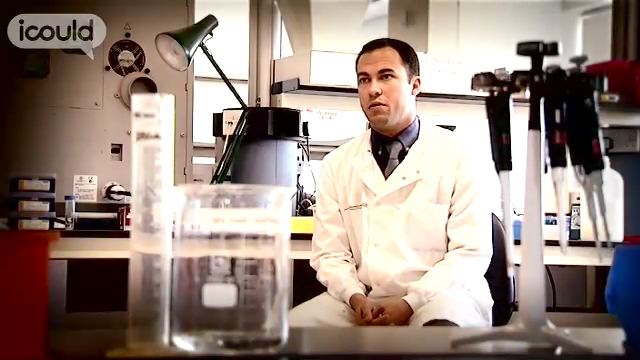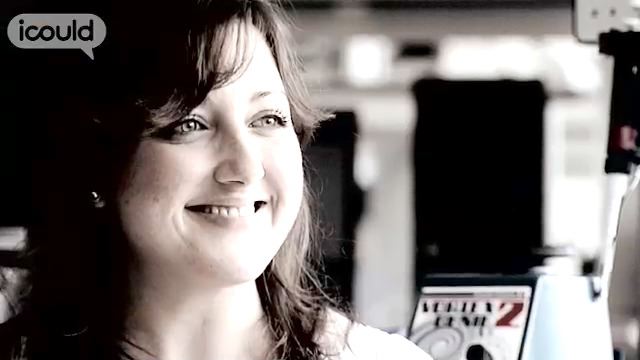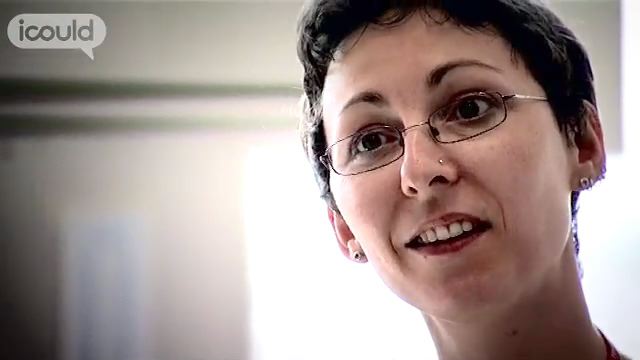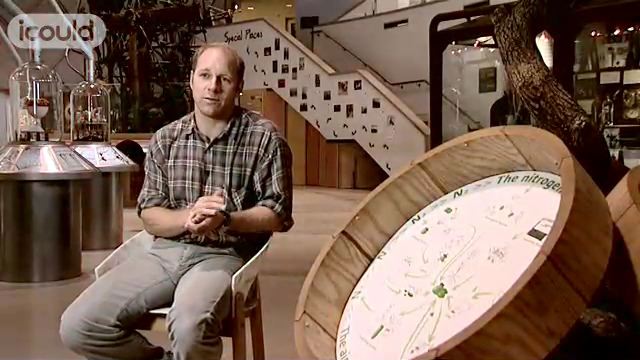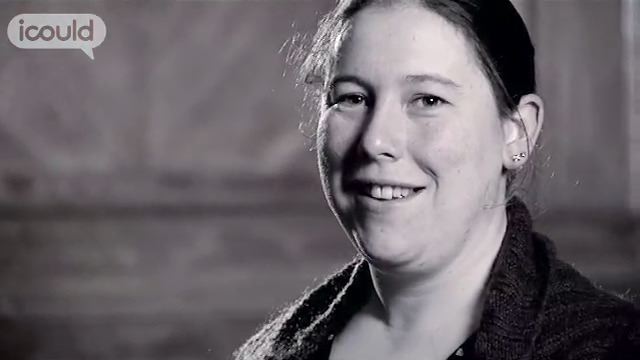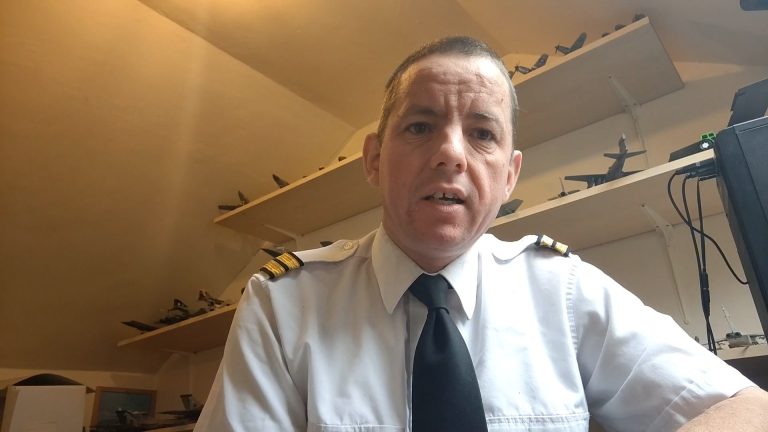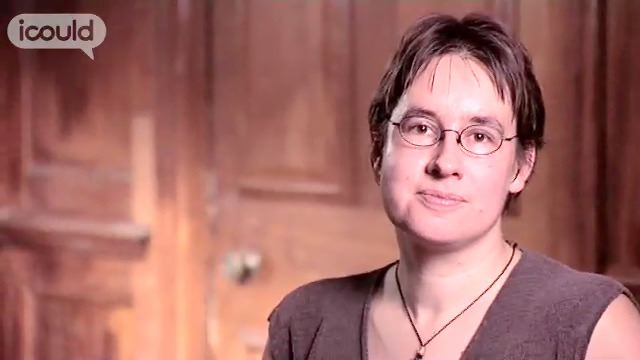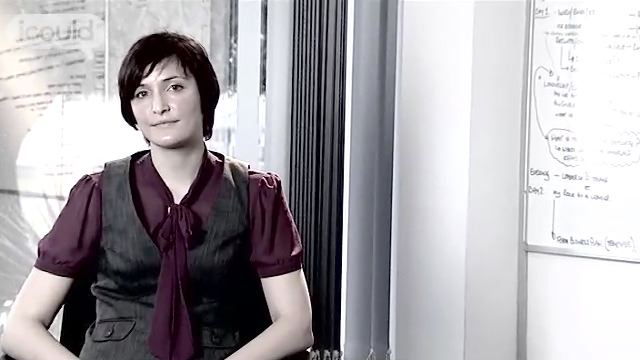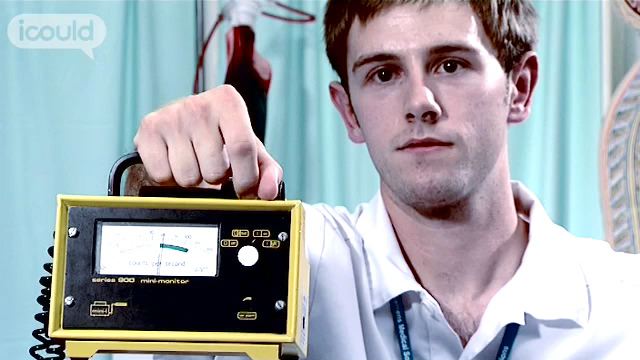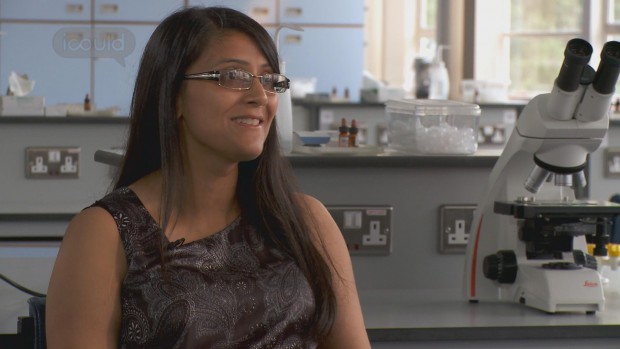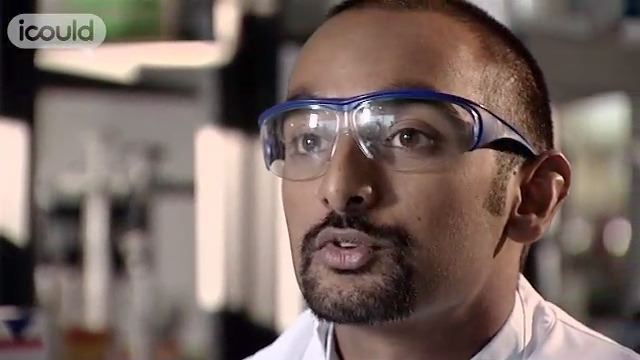Senior Scientist
Pfizer
Steve T
0.00.00 Okay, my name is Steven Trim. I’m a Senior Scientist working in molecular biology at Pfizer. So my job involves looking at DNA and how it is regulated differently in a disease process. So it’s we actually find ways to intervene with drugs and medicines to potentially correct and cure that disease. So from a day to day point of view, actually looking at samples to find out how thegenes are switched on or switched off in various systems from the whole human genome.
0.00.30 What I’ve always wanted to do is work in genetics. So from my pre GCSE years I saw a programme on genetics and how DNA has the blueprint for life and that really inspired me. I vividly remember him having many filing cabinets and pulling a filing cabinet
0.01.00 open and taking out one page and on that page was written the letters encoding DNA and he was saying that you’d need the information of this entire bank of filing cabinets to encode the DNA that is in every human cell. And to me I just found that amazing. I want to know more about how this works and how these letters make people. It was that moment that I decided that this is what I want to do. And I’ve basically stuck to that plan.
0.01.30 And so from there on I went on to do A levels in biology, chemistry and physics, cos I knew I needed a good wide scientific background and then done a degree in pure genetics. My parents pretty much let me get on with making my decisions, mainly because the things I was wanting to do and talking about genetics and DNA were a complete alien thing to them. I know my dad had a good grounding in mathematics from being an engineer, very quicklybecome difficult for him to help me with my maths homework for instance.
0.02.00 So they were very supportive and always there for me, took me round to the universities to do interviews and things but they very much let me make the decisions because they were unsure of what exactly I was trying to do and where I was trying to go. Outside of work I do quite a lot of stuff actually. I find myself very busy.
0.02.30 I’m a drummer in a rock band playing sort of Guns N Roses, Led Zeppelin, a bit of Metallica, just in pub gigs for entertainment. It’s good fun. I also keep and breed reptiles and I’ve sort of brought in my genetics interest into that and been selectively breeding corn snakes to produce different colours. That’s sort of a crossover interest that you can actually see genetics in the real world. And it’s the type of experiments that really don’t do the work, you know, it’s just really useful to actually see these things in action at home.
0.03.00 But I’m also a keen cook. I do a lot of fishing for the table as well. And I’ve just started climbing recently, so I do lots of stuff outside of work. In five years time I’d really like to be here or similar doing the same sort of thing I think really. The only other job I’ve done was during my year out from university I actually worked on a human genome project at the Sanger Centre where they’re actually reading and mapping the individual letters of the DNA
0.03.30 and roughly we’ve come to a stage now where we actually know all the letters of the human genome and we’re in the stage we’re finding out just what those genes are actually doing. And that’s exactly what I’m doing now. I’m finding out what genes are doing in their disease states, so we’re actually adding information onto the human genome with a specific emphasis on curing pain. So in five years time I’d really like to be here doing this.
0.04.00
Steve T is a Senior Scientist at Pfizer. His work involves adding information onto the human genome with the objective of alleviating pain. But this isn’t his only talent. In his spare time he plays the drums in a rock band, breeds lizards, catches fish and cooks.
More information about Biological scientists
The UK average salary is £29,813
There are 37.5 hours in the average working week
The UK workforce is 47% female and 53% male
Future employment
- Studies the physical form, structure, composition and function of living organisms
- Researches the effects of internal and external environmental factors on the life processes and other functions of living organisms
- Observes the structure of communities of organisms in the laboratory and in their natural environment
- Advises farmers, medical staff and others, on the nature of field crops, livestock and produce and on the treatment and prevention of disease
- Monitors the distribution, presence and behaviour of plants, animals and aquatic life, and performs other scientific tasks related to conservation not performed by Job holders in MINOR GROUP 215: Conservation and Environment Professionals
